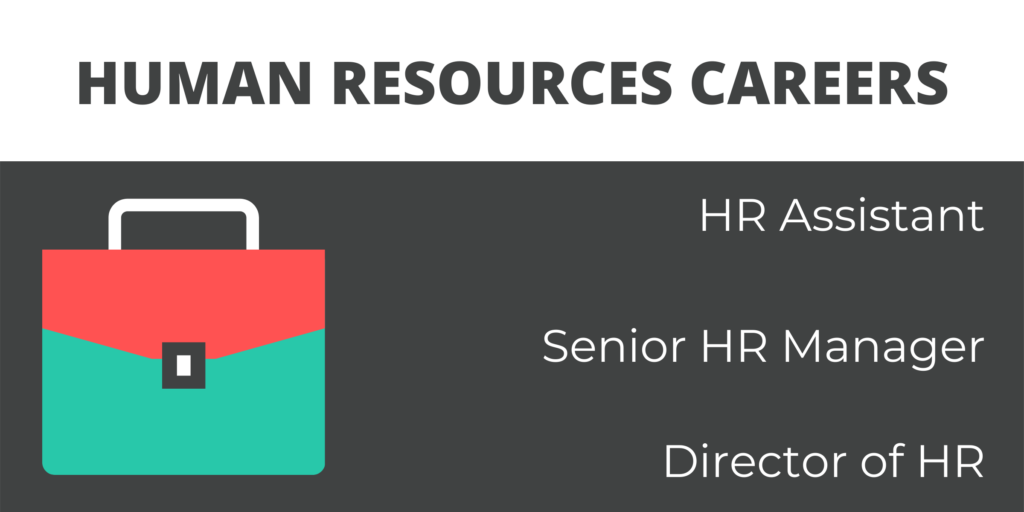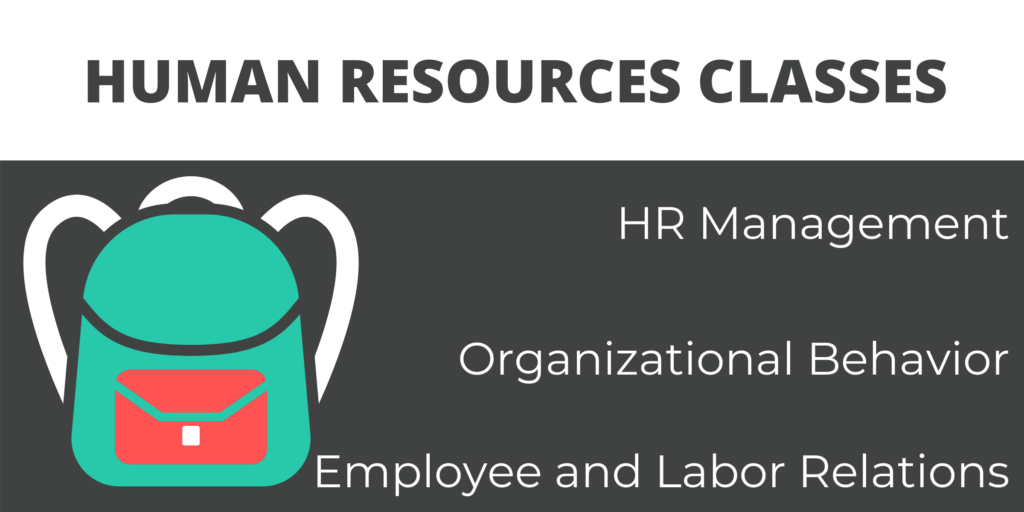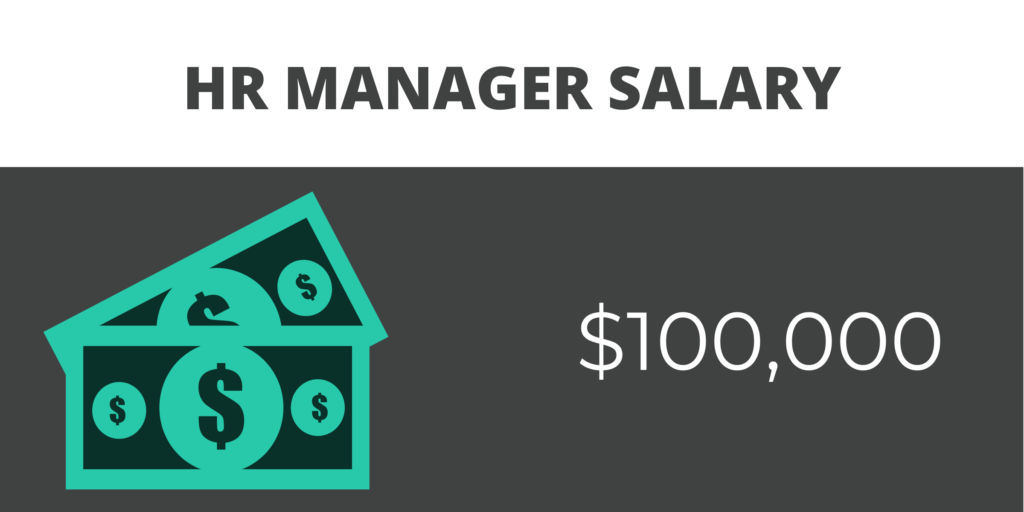In the following guide we will delve into the human resources profession–the education required, the best professional outcomes, and how to achieve these outcomes efficiently and effectively. Human resources is a foundational pillar of any business operation, and is a respected position in companies around the world. And for that reason, many human resources professionals will benefit from earning a degree from a quality business school that can provide the best opportunities for advancement and success.
What specialization should I choose?
Choosing the right degree specialization is key to unlocking the profession’s most lucrative opportunities–such as those offered to human resource managers. So with that in mind, you may wish to earn a human resources management degree or specialization. Additionally, many human resources professionals engage entrepreneurial endeavors as either entrepreneurs or as human resource managers for startup companies. If the entrepreneurial element is intriguing to you, you may want to consider earning a degree or specialization in entrepreneurism.
Consider your options
So with these points in mind, we have compiled a list of the most relevant guides, rankings, and resources to help you–whether you are committed to earning a Bachelor of Human Resources, or if you want to better understand your options.
Best Online Business School Opportunities by State
- Online Business Degree Opportunities: Arizona
- Online Business Degree Opportunities: Georgia
- Online Business Degree Opportunities: Illinois
- Online Business Degree Opportunities in California
- Online Business Degree Opportunities in Florida
- Online Business Degree Opportunities: Indiana
- Online Business Degree Opportunities: Massachusetts
- Online Business Degree Opportunities: Michigan
- Online Business Degree Opportunities: New Jersey
- Online Business Degree Opportunities: New York
- Online Business Degree Opportunities: North Carolina
- Online Business Degree Opportunities: Ohio
- Online Business Degree Opportunities: Pennsylvania
- Online Business Degree Opportunities: Texas
- Online Business Degree Opportunities: Virginia
- Online Business Degree Opportunities: Washington
Entrepreneurship
- Entrepreneur U: Schools for Start Ups
- What Can I Do with a Master’s in Entrepreneurship?
- The 10 Best Online Bachelor’s in Entrepreneurship Degree Programs
- The 10 Best Online Entrepreneurship MBA Degree Programs
- 10 Fastest Online Master’s in Entrepreneurship Degrees for 2021
- 10 Most Affordable Entrepreneurship Master’s Degrees for 2021
- 15 Best Online Master’s in Entrepreneurship Degrees for 2021
- 25 Best Master’s in Entrepreneurship Degrees for 2021
- 101 Entrepreneur Quotes for Every Situation
- The 50 Best Scholarships For Entrepreneurs
- What Is Social Entrepreneurship? + How to Impact Change With Your Business Degree
- What’s The Best Degree For Becoming An Entrepreneur?
- What Makes an International Destination Business Friendly?
- The Best Business iPhone and iPad Apps
- Do You Need A Business Degree To Run Your Own Business?
- 35 Women-Owned Business Statistics You Need to Know in 2021
- 30 Best Automation Technology Tools to Level Up Your Business
- What Goes Up In a Down Economy
- Foray Into Franchising
- An Introductory Course On Starting Your Own Business
Business, Management, and Additional Specializations
- What Can I Do with a Bachelor’s Degree in Business?
- What can I Do with an IT Management Degree?
- Comprehensive Guide to Business School Scholarships
- 15 Best Online Business Bachelor’s Degrees for 2020
- The 20 Best Online Bachelors in Finance Degree Programs
- The Best Online Real Estate MBA Degree Programs
- The Top 10 Online Business Management Degree Programs
- What Can I Do with a Bachelor’s in Accounting?
- What Can I Do With a Bachelor’s in Economics?
- What Can I Do with a Bachelor’s in Marketing?
- What Can I Do with a Business Analytics Bachelor’s Degree?
- What Can I Do With a Communications Degree?
- What Can I Do With a Construction Management Degree?
- What Can I Do with a Data Science Degree?
- What Can I Do with a DBA?
- What Can I Do with a Degree in Project Management?
- What Can I Do with a Healthcare Administration Bachelor’s Degree?
- What Can I Do With a Marketing Degree?
- What Can I Do with a Sports Management Bachelor’s Degree?
- What Can I Do with a Real Estate Degree?
- What Can I Do With a Nonprofit Management Degree?
- What Can I Do with a Supply Chain Management Degree?
- What Can I Do with an Actuarial Science Bachelor’s Degree?
- What Can I Do With an International Business Management Degree?
What is a Career in Human Resources?
A career in human resources is a specialized career in business management concerned with the success management and directing of an organization’s workforce. That is, while traditional business management professions focus on directing strategies from the top down–where directives pass from the leadership, down to executive managers, down to mid level managers, and so on–human resource professionals work closely with a workforce from the bottom-up to ensure an operation is running smoothly and productively.

More precisely, HR professionals ensure that an organization’s employees are mentally and physically healthy, efficient, and productive within their unique role in the company. Afterall, a company is only as good as its workforce. And this brings us to another major component of the HR profession–recruiting. If HR professionals are not working to ensure the productivity of an existing employee group, then they are working to recruit new employees to improve an organization’s standing in key metrics.
Here is a breakdown of common positions available to HR professionals:
- Compliance Officer
- Executive Recruiter
- Human Resources Administrator
- Human Resources Director
- Human Resources Manager
- Human Resources Specialist
- Job Placement Specialist
- Job Coach
- Recruitment Specialist
- Workforce Productivity Consultant
The reason why it is so important to have the right education and background in a human resources profession is that one’s career opportunities are tightly bound to one’s specialization and background. While this is the case for many professions and is relatively commonsensical, it bears repeating clearly so that prospective students can grasp the implications.
Many human resource career paths are gated behind certain education prerequisites or work experience, much like how graduate degree programs are gated behind undergraduate degree prerequisites. So while the human resource profession offers numerous unique and varied job opportunities, it is important to note that these opportunities are not always feasible for each individual human resource professional and are dependent on one’s credentials–which brings us to the next point of discussion.
What is the Education for a Human Resources Professional?
According to the Bureau of Labor Statistics there are two primary positions within the human resources job market:
- Human Resource Specialists
- Human Resource Managers
And according to the BLS, entry level jobs within these sectors typically require a Bachelor’s level education. This is excellent news for prospective students who would not want to pursue a graduate degree after graduating with their bachelor’s. It is also excellent news for students who want to pursue management positions without graduate education.

So while a Master’s level education is always beneficial and has been proven to increase earning potential and the number of professional opportunities available, it is not necessary for an HR professional to find success. With that being said, if one is not pursuing graduate level education it becomes even more important for one to maximize the effectiveness of their bachelor’s program.
And to do that requires the foresight of where one wants to professionally. And in order to develop the specialization needed to reach one’s professional goals, it is important to first understand the foundational curriculum of a Bachelor’s of Human Resources program:
Bachelor of Human Resources Curriculum

- Best practices and policies for staffing
- Compensation, benefits and retirement planning
- Employment and labor relations law
- Employee and performance assessment
- Human resources – planning and selection
- Human resources – strategies and analysis
- Leadership and manager practices
- Negotiation and dispute resolution
- Organization change management
- Organizational structures
- Recruitment Strategy
Students can begin developing specialization in a Bachelor of Human Resources program by pursuing independent research projects or additional coursework in a targeted subject matter. For instance, a student who continually engages projects and research concerning recruitment strategies will be well-positioned to take on employment as a recruitment specialist.
Of course though, for a student to make the most informed decision they will need a strong understanding of the options available to them. So let’s dive into the various human resource specializations.
Human Resources: Professional Specialization
As mentioned above, students can essentially ‘specialize’ in any of the areas of the curriculum which they find to be most conducive to their career goals and professional interests, however the most promising specialization paths are those which offer abundant job opportunities after graduation. So let’s break it down to the most promising specialization paths:

Management
HR Managers can earn more than double the annual salary of their HR Specialist counterpants. This is due to the competitive nature of these positions and the stringent requirements for a manager to be successful.
An HR Manager must be both a successful HR Specialist and a successful manager, which typically requires a high level of natural aptitude or extensive real world experience. Prospective HR Managers will want to take as many business-oriented courses as possible, particularly those focused on management. Similarly students will want to capitalize on any internship opportunities that might confer managerial experience.
Specialist
HR specialists make up a large portion of the job market and so students interested in this line of work will find an abundance of opportunities after graduation. HR Specialists typically focus on a specific task or group of tasks within the HR-tool-box, that is, they may work in scheduling shifts, hiring new employees, or running payroll.
While these individual tasks might seem like a small workload, in large companies that schedule thousands of workers each day, one of these above mentioned tasks could equate to full-time work. Prospective HR Specialists will want to either decide on the type of work they want to do and begin establishing an academic and professional background in that area; or they will want to maintain flexibility and pursue the best job available at the time.
In any case, both work experience, education level, and area of expertise will determine the number and quality of opportunities available.
Recruitment
Another major sector of the human resources job market is that of recruitment. Recruitment specialists work to find, groom, and employ promising professional candidates. There is much more to this professional path than you might think. Potential candidates must not only be evaluated on their own merits, but they must also be evaluated in terms of what the company needs and what the company can afford.
Many of the best sales professionals are notoriously expensive to employ. Inexperienced sales professionals are notoriously affordable but terribly unreliable. So how does one strike the balance between these considerations?
This question is at the heart of the HR Recruiter’s profession. They employ a wide range of software tools and old school techniques to execute on the acquisition of talented professionals. Prospective recruiters will want to pursue research projects, internships, and entry-level employment in the field where possible.
Placement
While recruiters work on the corporate side of the hiring process, job placement professionals work with professionals to find strong employment opportunities. While these job placement professionals do not hold allegiance to the companies they find hires for, they do typically work for job placement agencies.
Many job placement professionals are finding success in entrepreneurial avenues and self-employment routes. That is, savvy placement experts can build their own brand as job coaches or job placement gurus in order to take home the bulk of profits. Those interested in this path should begin cultivating a focus in recruitment and hiring policies, practices, and standards.
Consulting
HR Consultants can fill any of the variety of roles described in the sections above, but they do so from an outside position instead of working in-house with the company. HR Consultants are most commonly employed for recruitment or job placement, but they can work in a variety of capacities.
Because consultants are sought after for their expert opinions. Prospective HR consultants will want to build as much expertise and specialization as possible. In this case, it might be necessary to earn a Master’s degree or alternatively to build a robust portfolio of professional success.
Human Resources Market – Trends and Developments

Like any industry, the human resources market has evolved quite extensively over recent decades. The advent of the internet and information technology has revitalized recruitment strategies, scheduling capabilities, and other areas of interest to human resource professionals.
It would be impossible to cover all the important trends and development, so let’s breakdown some of the most exemplary statistics and trends for the human resources industry as provided by industry giants (Globoforce, glassdoor, HRdive):
- 8 out of 10 HR leaders report that attracting talent is a rapidly growing talent
- 47% of HR leaders report that employee retention and turnover are the two greatest challenges faced in the field
- Recruitment and corporate culture management are close behind
- More than 7 out of 10 HR leaders report that onboarding strategies are underutilized at their company
- Similarly, roughly 50% of HR leaders report increased employee engagement with strong onboarding practices
- Quality of new hires is increased by up to 70% when companies invest in a candidate’s experience
HR Industry Challenges
In order to hedge your bets for building success in the human resources profession, you will need to be prepared to tackle the challenges faced by the industry today. Employee retention, turnover, and low-engagement are constant plagues faced by the professionals. So let’s look closer at some of the challenges that HR professionals should be prepared to tackle:
Employee Turnover – Why People Quit
- 25% reported a lack of career development
- 15% reported a lack of support with work-life balance
- 12% reported their manager’s behavior
- 12% reported unsatisfactory compensation and benefits
- 10% reported poor well-being
Employee Burnout
- 5 out of 10 report burnout due to excessive workload
- Roughly 40% report burnout due to improper work-life balance
- Roughly 40% report a lack of support
- About a third report unclear expectations
- About a quarter report unfair performance-expectations
A student who enters the job market prepared to alleviate a company’s turnover and employee burnout will be tremendously successful. HR professionals who are able to deliver in these areas represent some of the well-compensated business professionals in the job market.

But in order to develop the necessary expertise needed to successfully tackle these problems, it may be necessary to pursue further professional development. But don’t worry, earning further degrees won’t be necessary–we’re talking about professional certifications.
Human Resources Professional Certifications
Professional certifications are a great way to leverage one’s knowledge and expertise for professional credentials. Particularly in the HR industry, these certifications can increase the prospects of employment and improve outlooks for compensation. Similarly, many high-end HR positions are gated behind credential requirements.
So let’s break down available HR certifications, so that you can choose the option that best matches your career goals. All of these certification options are offered by the Human Resources Certification Institute (HRCI), which is the premier credentialing body for HR professionals in the United States:
- Associate Professional in Human Resources
- This certification is the only certification that is designed specifically for entry-level employment in the industry. The certification exam covers foundational subjects in recruitment, compensation, and business operations.
- This certification is a great option for professionals who may not have earned a degree specifically focused on human resources, and will satisfy the requirements for many entry-level HR jobs.
- Professional in Human Resources – International
- This certification is meant to designate talented HR professionals who have established expertise in international business. The certification exam covers topics related to global business and international corporate culture.
- This certificate is an excellent option for those with a Bachelor of Human Resources to further distinguish themselves in the job market, and make themselves more desirable for future employers–particularly those hiring for companies with a global presence.
- Senior Professional in Human Resources
- The SPHR certification is a prestigious certification meant to designate the most talented HR professionals who demonstrate leadership and management abilities. Once earning this certification, professionals can expect to lead entire HR departments.
- The SPHR certification is an ideal credential for those who have graduated with a Bachelor of Human Resources Management, or who have management-focused career goals.
- SHRM Certified Professional (SHRM-CP)
- HR professionals can also earn a certification from The Society for Human Resource Management, which looks to demonstrate the overall aptitude of HR professionals. This certification confers a high level of expertise, and the requisite exam can be taken after just one year of experience in the workforce.
- This certification is a great option for entry-level professionals who want to pursue professional development after a short time in the field.
Human Resources – Industry Profile and Earnings

Drawing from data provided by the Bureau of Labor Statistics we can draw a vivid picture of the human resources profession. So let’s breakdown some of the most notable details:
Human Resources Specialist
- As of 2019 there were 666,500 jobs in this sector
- BLS projects to grow 7% from 2019 to 2029 (much faster than national average)
- Earn an annual median salary of $61,920 per year
- Equates to hourly wage of $29.77 per hour
- Lowest 10% of professional earned less than $37,180
- Top 10% of professionals earned more than $105,930
- Entry-level jobs typically require a Bachelor’s degree
- Previous work experience is not typically required
Human Resources Specialist Salaries by Industry
- Professional, scientific, and technical services
- Annual Median Salary – $70,180
- Government
- Annual Median Salary – $67,590
- Manufacturing
- Annual Median Salary – $64,900
- Employment services
- Annual Median Salary – $54,660
- Healthcare and social assistance
- Annual Median Salary – $53,190
Human Resources Managers
- As of 2019 there were 165,200 jobs in this sector
- BLS projects to grow 6% from 2019 to 2029 (much faster than national average)
- Earn an annual median salary of $116,720 per year
- Equates to hourly wage of $56.11 per hour
- Lowest 10% of professional earned less than $68,300
- Top 10% of professionals earned more than $205,720
- Entry-level jobs typically require a Bachelor’s degree
- Entry-level jobs typically require a Bachelor’s degree
- 5 Years work experience is typically required
Human Resources Manager Salaries by Industry
- Professional, scientific, and technical services
- Annual Median Salary – $131,340
- Management of companies and enterprises
- Annual Median Salary – $129,510
- Manufacturing
- Annual Median Salary – $115,000
- Government
- Annual Median Salary – $102,660
- Healthcare and social assistance
- Annual Median Salary – $99,380
Carrie Morris
Author
Warren Dahl
Editor-in-Chief
